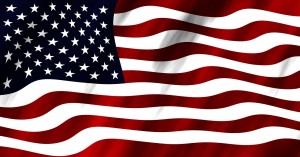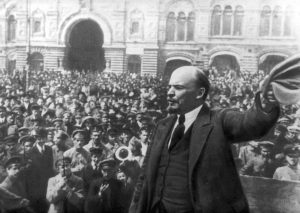 Another day, another interview with Israel National Radio, another penetrating question that goes right to the core of the matter: “How does Russia’s aggression against the Ukraine affect the world in general and America’s allies in particular?”
Another day, another interview with Israel National Radio, another penetrating question that goes right to the core of the matter: “How does Russia’s aggression against the Ukraine affect the world in general and America’s allies in particular?”
Since the interview kicked off at an ungodly hour of 5.30 am, my thinking was as sluggish as my voice was hoarse. Some afterthoughts are therefore in order, for the problem is vast.
Many nations count on America to defend them from bullies, yet America’s record in that area is at best mixed (which is not to say that ours is much better).
When President Wilson dragged the USA into the First World War, his aim was not just to defeat the Central European powers but – more important – to rid Europe of all traditional empires, including the British and the Russian with which America was ostensibly allied.
Wilson correctly surmised that their collapse would herald the advent of a new order spearheaded by America. That’s why he (and, to be fair, our own Lloyd George) welcomed both Russian revolutions of 1917, including the Bolshevik one.
Both countries offered only a token support to the White armies fighting to protect some semblance of civilisation in Russia. With the prescience we’ve learned to expect from our leaders, the dynamic duo reassured their electorates that, “Bolsheviks would not wish to maintain an army, as their creed is fundamentally anti-militarist.” Ergo, “There must be no attempt to conquer Bolshevik Russia by force of arms.”
This, even though the Whites, unlike the Bolsheviks, were prepared to honour Russia’s obligations and keep their troops fighting for the Allies. The Bolsheviks, on the other hand, signed a separate peace with Germany, which was bound to cost the Allies numerous lives.
Not to worry. To the Wilsons and Lloyd Georges of this world, the war against Germany didn’t matter as much as the war for the world. For what Henry Luce described as ‘the American century’ to kick in, old empires had to go.
The British Empire managed to hang on by the skin of its teeth, but that unfortunate situation was corrected in the Second World War. Roosevelt clearly saw his mission in not just defeating the Axis powers, but also in ridding the world of the last bastion of traditional civilisation.
In that, Roosevelt’s desiderata overlapped with Stalin’s, but obviously not with Churchill’s. That’s why he objected to the terms on which America’s aid was offered during the Battle of Britain.
That victory was won at the expense of not only British lives but also Britain’s post-war economic prospects. Churchill knew this was coming: Britain, unlike Russia, had to pay for everything in cash, and IOUs (the last of which was paid off only in 2006) were accepted only grudgingly.
To keep up the payments, Britain had to sell all her overseas holdings and all her gold reserves. It was clear to Churchill that, even if the war were won, the Empire would be lost.
On 7 December, 1940, he wrote to Roosevelt, pleading that the brutally unsentimental terms on which American aid was being proffered would consign Britain to a position in which “after the victory was won with our blood and sweat, and civilisation saved, and the time gained for the United States to be fully armed against all eventualities, we should stand stripped to the bone. Such a course would not be in the moral or economic interests of either of our countries.” Roosevelt acknowledged receipt and promptly collected Britain’s last £50 million in gold.
After the war the Americans continued this pattern of treating their friends in an unfriendly manner. In 1956 the CIA-controlled Radio Free Europe issued a call to arms for Hungarian patriots fed up with Soviet domination. They promptly rose up in full expectation of American help, which never came.
Soviet tanks rolled in and massacred Hungarian youngsters, while Americans were busy saving the fascist regime of Nasser in Egypt from the British-French-Israeli invasion force.
One would think that others would heed the lesson, but Cuban anticommunist émigrés didn’t. Aghast at watching their country raped by Castro’s thugs, they joined an armed force being trained, equipped and financed by the CIA.
On 16 April, 1961, Brigade 2506 landed at Playa Girón on Bahía de Cochinos (the Bay of Pigs). Their chances of getting rid of the communists were odds-on. After all, the air support promised by the Kennedy administration would offset Castro’s numerical superiority and his tanks.
Yet again, however, the US administration got cold feet. In an act of egregious betrayal the promised air support was withdrawn at the last moment, and the Cuban freedom fighters were butchered on the beach.
Moving right along, apart from issuing a few empty threats, Americans didn’t bat an eyelid when Soviet tanks turned the Prague Spring into a long winter. Nor did they do anything to defend their staunch ally, the Shah of Iran, in 1979 when he was being ousted by the chaps who’re now plotting to bring the world to the brink of a nuclear disaster. And so forth, ad infinitum.
This is the context in which Putin’s aggression against the Ukraine ought to be viewed. Obama, Cameronet al have responded with the traditional weapons at their disposal: meaningless phrases and empty threats.
Dave went so far as to promise a boycott of the Sochi Paralympics – I bet that’ll make Putin break into a cold sweat. Obama and Kerry threatened to reduce the G8 to its former G7. They didn’t express any willingness to make up any subsequent deficit in gas that would ensue if Putin chose to turn off the tap on his supply pipe.
The deficit would be huge. France gets 14% of her gas from Russia, Italy 27%, Germany 36%, Austria 49%, Greece 76%, while the three Baltic republics plus Finland rely on Russia for 100% of their gas supply. Not to bore you with too many numerals I’ve left all other EU members out, but the point is made, don’t you think?
The whole situation sends a message to America’s allies, such as Japan, South Korea, Taiwan and – above all – Israel: Be afraid. Be very afraid, especially if you aren’t prepared to go it alone when the going gets tough.
My interviewer Tamar Yonah doesn’t seem to be afraid. On the contrary, she seems to believe that now Obama has shown his true colours, Israel will no longer feel obliged to follow America’s diktats.
Since under Obama’s sage guidance those diktats range from appeasement to virtual surrender to suicide, such courage is good news – provided Israel is strong enough to handle single-handedly such threats as Iran’s nuclear programme.
I pray she is; I fear she isn’t. One way or the other, Israel knows that Obama’s America isn’t necessarily a friend to be trusted.









Comments